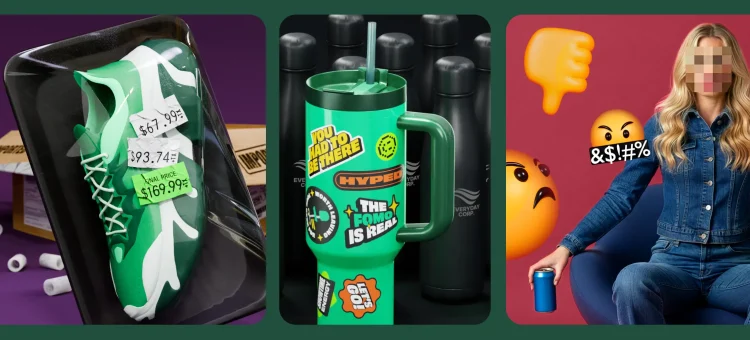Consumer confidence holds steady in this month’s New York Times|SurveyMonkey poll, ticking up to a score of 45 from 44 in April. Forward-looking expectations are the worst they’ve ever been: only 33% expect to be better off financially a year from now (a new low), while 46% expect to be the same and 20% expect to be worse off.
A full 60% of people now expect periods of widespread unemployment or depression in the next five years, while just 37% expect continuous good times economically. More people say they are worse off compared with a year ago than say they are now better off (30% vs. 25%).
Twice as many people now expect business conditions in the next 12 months to be bad rather than good (40% vs. 20%). Despite the dire economic sentiment, a slim majority of Americans views the coronavirus outbreak as more of a health crisis than an economic crisis for the country as a whole (53% vs. 45%), as well as for themselves personally (51% vs. 47%).
As the unemployment number continues to grow, a majority of people (56%) who are not employed say they are not likely to find a new job in the next month. Most of those who aren’t currently working are nervous about the impact that going back to work will have on their health. More than two-thirds (68%) say they are worried that returning to work would be a risk to their own health. Among those who are employed, just 45% say they are worried that performing their usual job responsibilities is a risk to their own health—a substantial number but still 20 points less than among the unemployed.
For more detailed results, click through the interactive toplines below.
Read more about our polling methodology here.
Question text:
Which one of the following issues matters MOST to you right now?
Would you say that you and your family are better off or worse off financially than you were a year ago?
Now looking ahead - do you think that a year from now you and your family will be better off financially, worse off financially, or just about the same as now?
Now turning to business conditions in the country as a whole - do you think that during the next 12 months we'll have good or bad times financially?
Looking ahead, which would you say is more likely to take place in the next five years for the country as a whole:
Thinking about the big things people buy for their homes - such as furniture, a stove, a television… Generally speaking, do you think now is a good or bad time for people to buy major household items?
Thinking about the U.S. as a whole, is the coronavirus outbreak more of an economic crisis or more of a health crisis?
How about for you personally? Is the coronavirus outbreak more of an economic crisis or more of a health crisis?
(Among employed) Have your hours been cut or has your income been reduced because of the coronavirus outbreak?
(Among employed) Are you able to work from home because of the coronavirus outbreak?
(Among employed) How worried are you that you will lose your job in the coming weeks because of the coronavirus outbreak?
(Among employed) How worried are you that performing your usual work responsibilities right now is a risk to your own health?
(Among NOT employed) Approximately how long have you been out of work?
(Among NOT employed) Have you applied for unemployment benefits in the past four weeks?
(Among NOT employed) How likely do you think you are to find a new job in the next month?
(Among NOT employed) How worried are you that returning to work would be a risk to your own health?
(Among NOT employed) If you had to make the following decision today, would you prefer to: Continue not working while receiving your current amount of government assistance / Accept a new job that matches your previous salary



